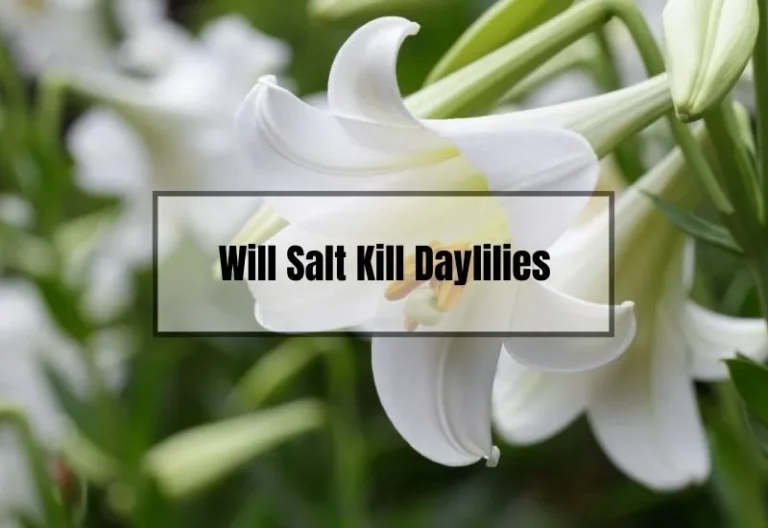Why Do Farmers Grow Sunflowers and Let Them Die (Explained)
Have you ever wondered why farmers allow fields of sunflowers to wither away? It might appear wasteful, but there are good reasons behind this practice. Sunflowers, a versatile crop, offer numerous benefits to both farmers and the environment.
One primary reason farmers leave sunflowers to dry in the field is for the natural drying process. Sunflowers are typically grown for their seeds, used in various products like food and oil. To ensure these seeds are ready for harvest, they must be dry. Allowing sunflowers to dry naturally in the field saves time and money compared to artificial drying methods, and it also preserves seed quality.
Additionally, sunflowers play a role in improving soil health. Their deep roots help break up compacted soil and enhance drainage. Furthermore, sunflowers absorb nutrients from the soil, storing them in their leaves and stems. When the sunflowers decompose, these nutrients are returned to the soil, enriching it for future crops.

Why Do Farmers Grow Sunflowers and Let Them Die?
Why Do Farmers Grow Sunflowers and Let Them Die? Sunflowers, a favored crop among farmers, are often left to naturally wither in the field.
Here are the key reasons:
- Natural Drying Process: Farmers primarily cultivate sunflowers for their seeds, used in food, oil, and more. To harvest these seeds, they must be thoroughly dry. Allowing sunflowers to dry naturally in the field saves farmers time and money compared to using drying equipment.
- Soil Improvement: Sunflowers possess deep roots that enhance soil quality. As they decompose in place, their roots break up hardpan soil, facilitating water and nutrient absorption. Additionally, decomposing sunflowers enrich the soil with organic matter, improving its texture and fertility.
- Natural Pest Control: Sunflowers serve as natural pest repellents by attracting beneficial insects like bees and wasps. These insects help deter harmful pests, reducing the need for chemical pesticides that can harm humans and the environment.
- Phytoremediation: Farmers also grow sunflowers for their phytoremediation properties, which enable them to detoxify soil by removing harmful contaminants. This process ensures a safer environment for future crops.
Why Do Farmers Plant Sunflowers Around Corn?
Another benefit of sunflowers is their ability to take advantage of excess nitrogen left behind in the soil by previous crops. This is particularly useful when it comes to corn crops, which are notorious for leaving behind excess nitrogen.
When sunflowers are planted after a corn crop, they can take up that excess nitrogen and use it to grow tall and strong. This not only benefits the sunflowers themselves, but it can also help to improve the soil for the following crop.
Sunflowers are a great choice for this purpose because they can thrive in nitrogen-rich soil, unlike other crops like soybeans, which can be prone to disease in those conditions.
Why Do People Plant Sunflowers in Their Gardens?
Okay, so we’ve talked about why farmers grow sunflowers, but what about the average gardener? Well, as it turns out, sunflowers have a lot to offer in a garden setting as well. For one thing, they’re great at attracting pollinators like bees and butterflies, making them a valuable addition to any vegetable garden.
In addition, their tall, sturdy stems can serve as a living trellis for climbing plants like beans or cucumbers. And let’s not forget the aesthetic appeal of sunflowers, which can add a cheerful, summery vibe to any garden.
But perhaps the most surprising benefit of sunflowers in a garden setting is their ability to clean contaminated soil. Sunflowers are known for their ability to absorb pollutants and heavy metals from the soil, making them a useful tool for cleaning up contaminated sites.
This was demonstrated in the aftermath of the Chernobyl nuclear disaster, where sunflowers were planted to help absorb radioactive metals from the soil.
Do Sunflowers Remove Toxins from Soil?
Speaking of sunflowers’ ability to clean up contaminated soil, let’s dive a little deeper into this topic. It’s true that sunflowers are able to absorb pollutants and heavy metals from the soil, but there are some important caveats to keep in mind. For one thing, sunflowers can only remove contaminants from the soil to a certain depth, so they may not be effective at cleaning up groundwater contamination.
Additionally, the process of using sunflowers to clean up contaminated soil can be slow and labor-intensive, as the plants must be carefully harvested and disposed of in order to prevent the contaminants from re-entering the ecosystem.
Nevertheless, sunflowers remain an intriguing option for cleaning up contaminated sites, and ongoing research is exploring ways to optimize this process.
The Role of Sunflowers in Agriculture
Sunflowers are more than just a pretty flower. They have a significant role in agriculture. In this section, we will explore the ways in which sunflowers benefit farmers and their crops.
Soil Improvement
Sunflowers are known for their ability to improve soil quality. They are considered ‘phytoremediators’, which means they can detoxify soil. Sunflowers have deep roots that can suck up harsh chemicals and other contaminants that are present in the soil.
When sunflowers are allowed to die and decompose in place, those deep roots also help to break up hardpan soil, making it easier for water and nutrients to penetrate. In addition, the decaying sunflowers add organic matter to the soil, improving its texture and fertility.
Pest Control
Sunflowers can also play a role in pest control. They produce a chemical called allelopathy, which inhibits the growth of other plants around them. This can be helpful in controlling weeds and other unwanted plants.
Additionally, sunflowers can attract beneficial insects such as ladybugs, lacewings, and bees, which can help control pests like aphids and spider mites.
Crop Rotation
Sunflowers can also be used as part of a crop rotation strategy. Crop rotation involves alternating the crops grown in a field to help maintain soil health and reduce pest and disease problems.
Sunflowers are a good crop to include in a rotation because they are not susceptible to many of the pests and diseases that affect other crops such as corn or soybeans. Additionally, sunflowers are a good break crop for fields that have been heavily planted with other crops.
Frequently Asked Questions (FAQs)
Now that we’ve covered some of the main benefits of sunflowers, let’s tackle a few common questions that people have about these cheerful flowers:
Can you eat sunflower seeds?
Yes! Sunflower seeds are a tasty and nutritious snack, and they can be eaten raw or roasted. In addition, sunflower oil is a common cooking oil that is extracted from sunflower seeds.
How do I care for sunflowers in my garden?
Sunflowers are relatively easy to grow, but they do have a few specific needs. They prefer full sun and well-drained soil, and they should be watered regularly. Additionally, tall sunflowers may need to be staked to prevent them from toppling over in strong winds.
Can sunflowers be grown indoors?
While sunflowers are typically grown outdoors, it is possible to grow them indoors as long as they have access to plenty of sunlight and well-drained soil. However, they may not grow as tall or produce as many flowers as they would outdoors.
Conclusion
So, there you have it: a rundown of why farmers grow sunflowers and let them die, along with some related questions and answers. As we’ve seen, sunflowers are much more than just a pretty face. They play a valuable role in agriculture, helping to improve soil quality and increase crop yields.
In addition, they offer a range of benefits in a garden setting, from attracting pollinators to cleaning up contaminated soil. So, next time you see a field of sunflowers swaying in the breeze, remember that there’s a lot more going on beneath the surface than meets the eye. Happy gardening!
Related Posts:






